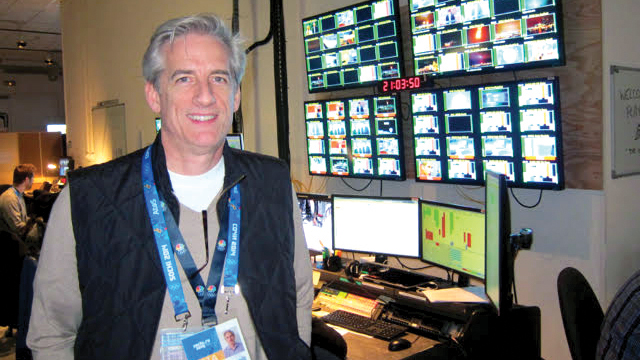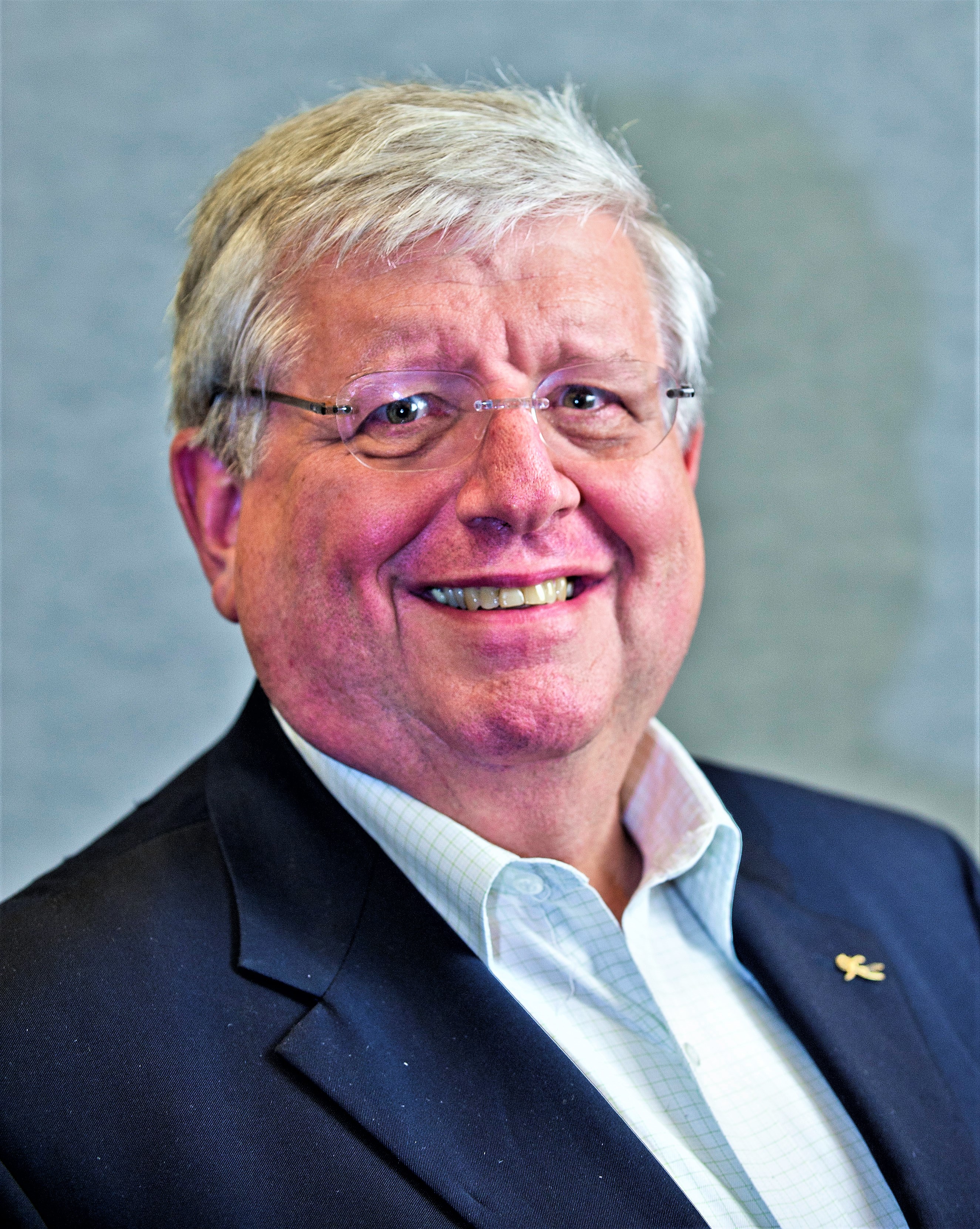David Mazza
Senior VP and Chief Technical Officer, NBC Sports Group and NBC Olympics

The professional video industry's #1 source for news, trends and product and tech information. Sign up below.
You are now subscribed
Your newsletter sign-up was successful
When Mazza thinks about the “Olympics at Home,” his thoughts go not to a living room but to the “virtual International Broadcast Center” (IBC) that his NBC team developed for the 1996 Atlanta Olympic Games. As director of engineering, Mazza led the team that developed an infrastructure, which let part of NBC’s massive control center operate at New York headquarters, fully integrated with the on-site control center in Atlanta. Three dozen video feeds went up to New York, where replay servers, graphics creation terminals and other production tools were based. Live productions came from the control room in Atlanta, but taped or time-shifted material ran from 30 Rock in New York.
This corporate decision to put a permanent sports operations center at headquarters was designed to minimize the expense and effort of building a full control facility at every Olympics venue. The current IBC in Stamford, Conn. opened in 2013, built by Mazza’s team to supplement the re-usable infrastructure that NBC moves to new locations for Olympic coverage.

“In ’96, we had to pioneer a lot of stuff that nobody thought would work,” Mazza recalled. “All the remote control and Ethernet-based controls did not exist. File-based workflows did not exist; the concept of remote-controlled anything was brand new.”
Mazza is planning for the rescheduled Tokyo Olympics in 2021. He envisions six control rooms in Japan working with three trucks on site — all controlled from truck docks in Stamford.
Mazza said he and his team have been working like this for 14 years, adding that it’s the only way they could have produced such a large amount of video content. NBC has been using some of the same virtual tactics for college football productions during the pandemic.
He’s also enthusiastic about the value of tools such as media asset management, which has become vital throughout production.
“You need persistence, passion and insatiable curiosity about how things work,” Mazza said. “Also, an unrelenting attention to detail and testing.” Given everything that can go wrong during a live sportscast, Mazza said metaphorically, “You have to design your systems for resilience on a bad day, not a perfectly clear sunny day.”
The professional video industry's #1 source for news, trends and product and tech information. Sign up below.
Gary Arlen, a contributor to Broadcasting & Cable, NextTV and TV Tech, is known for his visionary insights into the convergence of media + telecom + content + technology. His perspectives on public/tech policy, marketing and audience measurement have added to the value of his research and analyses of emerging interactive and broadband services. Gary was founder/editor/publisher of Interactivity Report, TeleServices Report and other influential newsletters; he was the long-time “curmudgeon” columnist for Multichannel News as well as a regular contributor to AdMap, Washington Technology and Telecommunications Reports; Gary writes regularly about trends and media/marketing for the Consumer Technology Association's i3 magazine plus several blogs.

